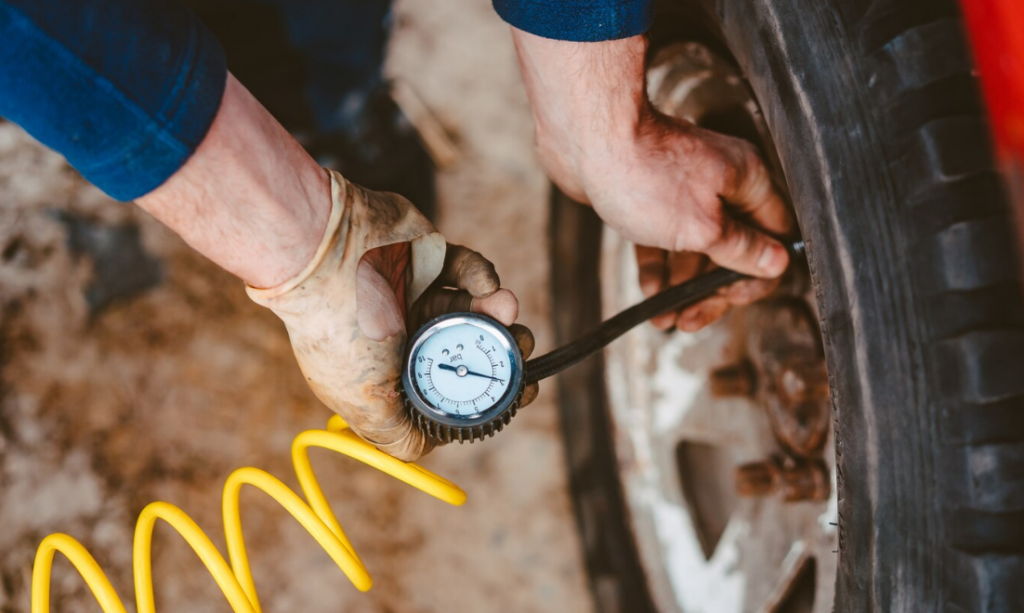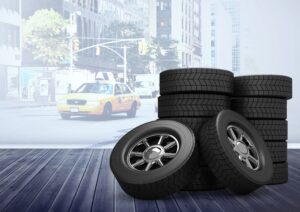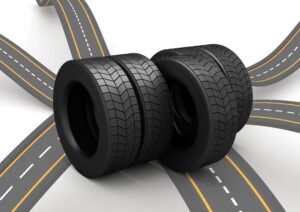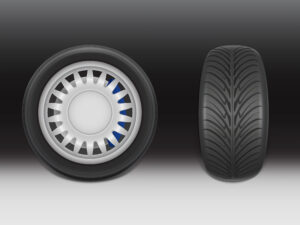Kia Sonet Tyre Pressure Guide: Recommended PSI, TPMS, and Best Tyres for Optimal Performance

Maintaining the correct Kia Sonet tyre pressure is essential for ensuring a smooth ride, optimal fuel efficiency, and extended tyre life. Tyres are the only point of contact between your vehicle and the road, and their inflation level significantly impacts safety, braking, and handling.
Incorrect tyre pressure can lead to various issues, such as increased fuel consumption, uneven tyre wear, poor braking performance, and a higher risk of tyre blowouts. This guide provides a detailed breakdown of the Kia Sonet recommended tyre pressure, the importance of the Kia Sonet TPMS (Tyre Pressure Monitoring System), and a list of the best tyres for Kia Sonet based on different driving conditions.
By following the correct tyre pressure recommendations and maintaining your tyres properly, you can enhance your vehicle’s overall performance while ensuring safety on the road.
Kia Sonet Recommended Tyre Pressure
Maintaining the correct Kia Sonet tyre pressure is crucial for ensuring a safe and comfortable driving experience. Tyre pressure directly impacts fuel efficiency, braking performance, steering response, and overall tyre longevity. If your tyres are underinflated, they generate excessive heat due to increased rolling resistance, leading to premature wear and higher fuel consumption. Conversely, overinflated tyres can reduce traction, making the vehicle more prone to skidding, especially on wet roads.
Understanding the Recommended Tyre Pressure for Kia Sonet
The Kia Sonet recommended tyre pressure varies based on the variant and driving conditions. Kia provides specific pressure levels to optimize performance, handling, and efficiency.
- For Petrol Variants (Manual and iMT), the ideal pressure is 33 PSI for both front and rear tyres. This ensures a balance between comfort and fuel efficiency, making it suitable for daily commuting and highway driving.
- For Diesel Variants (Manual and Automatic), the front tyres should be inflated to 35 PSI, while the rear tyres should be set at 33 PSI. Since diesel engines are heavier, a slightly higher front tyre pressure helps manage the additional weight.
- For Turbo Petrol Variants (DCT), the recommended pressure is 34 PSI for the front and 32 PSI for the rear. The slight reduction in rear tyre pressure enhances ride comfort without compromising stability.
Understanding the Kia Sonet TPMS (Tyre Pressure Monitoring System)
The Kia Sonet TPMS is a safety feature that continuously monitors tyre pressure and alerts the driver if any tyre is underinflated. This system helps prevent potential risks such as tyre blowouts, excessive tyre wear, and reduced fuel efficiency.
How the Kia Sonet TPMS Works
- TPMS sensors are installed in each tyre to measure air pressure in real-time.
- If the pressure drops below the recommended level, a warning light appears on the dashboard.
- The system ensures that the driver is immediately notified in case of a sudden pressure drop.
Common Kia Sonet TPMS Issues and Fixes
- If the TPMS warning light stays on, it usually means one or more tyres have low pressure. Inflating the tyres to the recommended level should resolve the issue.
- If the warning persists despite correct pressure, there may be a faulty TPMS sensor that needs replacement.
- If the TPMS light turns on and off periodically, it could be due to temperature fluctuations, as cold weather can temporarily reduce tyre pressure.
- If the TPMS does not reset automatically, drive the vehicle above 30 km/h for about 10–15 minutes after adjusting the tyre pressure.
Best Tyres for Kia Sonet Based on Driving Needs
Choosing the right set of tyres for your Kia Sonet depends on factors such as road conditions, driving habits, and climate. Here are some of the best tyres for Kia Sonet based on different driving requirements:
- Performance Tyres: If you prioritize grip, handling, and high-speed stability, performance-oriented tyres like Michelin Pilot Sport or Bridgestone Potenza are excellent choices.
- Fuel-Efficient Tyres for Sonet: To maximize mileage and reduce fuel consumption, tyres like Goodyear Assurance FuelMax or Bridgestone Ecopia are great options.
- All-Season Tyres: If you drive in varying weather conditions, all-season tyres like Apollo Alnac 4G or Continental CrossContact provide a good balance of durability and performance.
When purchasing tyres, always ensure they have the correct load rating and speed index specified by Kia to maintain vehicle safety and warranty compliance.
How to Check and Maintain Kia Sonet Tyre Pressure
Regularly checking and maintaining the correct Kia Sonet tyre pressure can help enhance driving performance, prevent excessive tyre wear, and improve fuel efficiency.
Steps to Check Tyre Pressure
- Use a digital or analogue tyre pressure gauge to get an accurate reading.
- Remove the valve cap from the tyre and press the gauge onto the valve stem.
- Read the pressure level displayed on the gauge.
- If the pressure is too low, inflate the tyre to the recommended PSI using an air compressor.
- If the pressure is too high, release some air by pressing the valve pin with a screwdriver or the gauge.
- Reattach the valve cap securely to prevent dust and moisture from entering the valve.
Tips for Proper Tyre Maintenance
- Check tyre pressure at least once every two weeks and before long trips.
- Inspect tyres for uneven wear, cuts, or punctures regularly.
- Rotate tyres every 8,000–10,000 km to ensure even wear.
- Ensure the spare tyre is also maintained at the correct pressure.
Maintaining optimal tyre pressure improves fuel efficiency and prevents excessive tyre replacement costs.
Get Professional Tyre Services at KwikFix Auto
If you need a tyre pressure check, puncture repair, or tyre replacement, KwikFix Auto offers professional and affordable services.
Why Choose KwikFix Auto?
- Expert tyre pressure monitoring and inflator services
- On-site puncture repair and emergency roadside assistance
- Wide range of premium tyre brands, including Michelin, Apollo, and Goodyear
Book your service today at KwikFix Auto or call +91 9950 345 345 for immediate assistance.
Maintaining the right Kia Sonet tyre pressure ensures better performance, safety, and fuel efficiency—drive smart and stay safe!
Conclusion
Maintaining the correct Kia Sonet tyre pressure is essential for safety, fuel efficiency, and overall driving comfort. Underinflated tyres can increase fuel consumption and wear out quickly, while overinflated tyres reduce traction and make the ride uncomfortable. Regularly checking and adjusting tyre pressure ensures optimal performance and extends tyre life. Additionally, using the Kia Sonet TPMS helps monitor pressure levels in real time, preventing potential issues. Choosing the best tyres for Kia Sonet based on driving conditions further enhances the driving experience. Prioritizing proper tyre maintenance keeps your Sonet running smoothly, safely, and efficiently on every journey.
Frequently Asked Questions
Q1. What is the ideal tyre pressure for Kia Sonet?
A1. The recommended tyre pressure for most Kia Sonet variants is 33 PSI for Petrol, 35 PSI for Diesel (front tyres), and 34 PSI for Turbo Petrol models. Always check the driver’s door sticker for specific values.
Q2. How often should I check Sonet tyre pressure?
A2. It is advisable to check tyre pressure at least once every two weeks and before any long drive. Regular checks help maintain safety, improve fuel efficiency, and prevent uneven tyre wear.
Q3. Does Kia Sonet come with a TPMS system?
A3. Yes, the Kia Sonet is equipped with a Tyre Pressure Monitoring System (TPMS) that provides real-time alerts if any tyre is underinflated.
Q4. Why does my TPMS warning light keep turning on?
A4. The TPMS light may turn on due to low tyre pressure, temperature changes, or a faulty sensor. Check and adjust tyre pressure accordingly, and if the issue persists, visit a service center.
Q5. What happens if I drive with underinflated tyres?
A5. Driving with underinflated tyres can increase fuel consumption, reduce tyre lifespan, and compromise braking performance, leading to unsafe driving conditions.
Q6. Can I use nitrogen instead of regular air in Kia Sonet tyres?
A6. Yes, nitrogen can be used in Kia Sonet tyres as it helps maintain stable pressure for longer periods and reduces moisture inside the tyre. However, regular air also works fine.
Q7. Which tyres are best for Kia Sonet diesel variants?
A7. For diesel variants, tyres like Bridgestone Ecopia or Apollo Alnac 4G offer a balance of durability, grip, and fuel efficiency.
Q8. How can I increase the fuel efficiency of my Kia Sonet through tyre maintenance?
A8. To improve fuel efficiency, ensure tyres are inflated to the correct PSI, use fuel-efficient tyres for Sonet, and rotate them periodically to reduce uneven wear.





